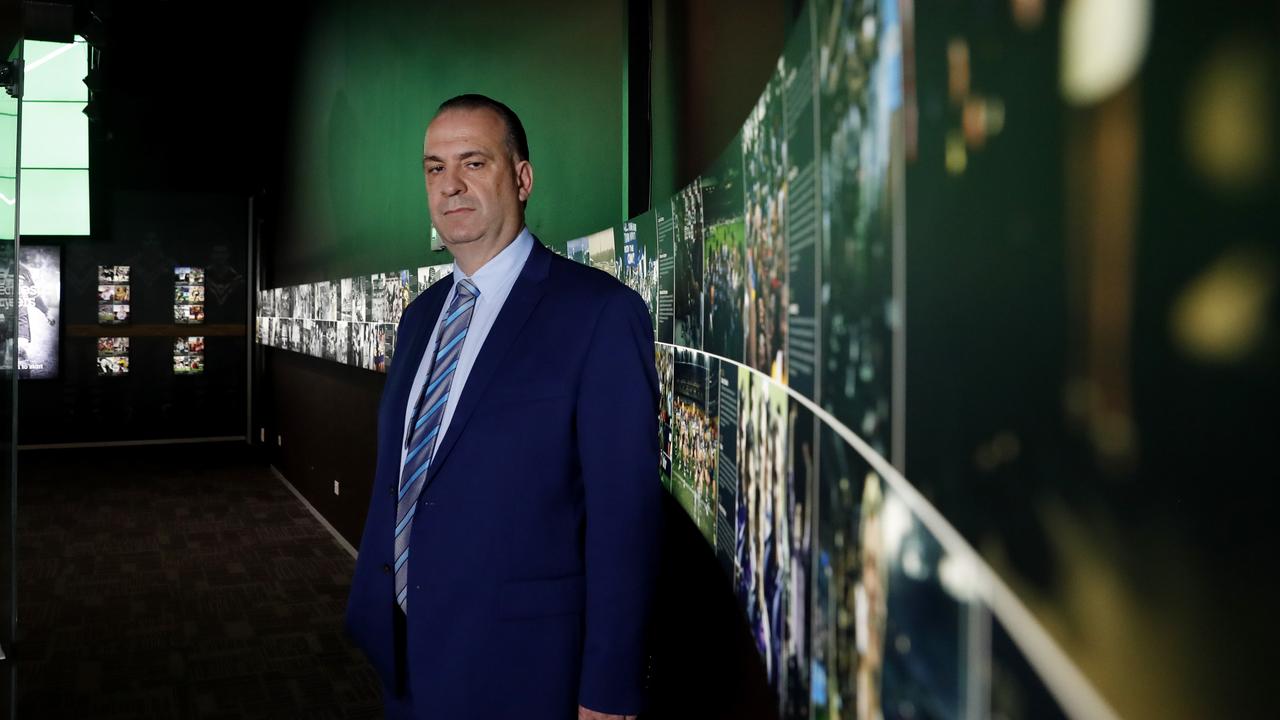One-speed Wallabies show their rugby literacy is lacking
While the Wallabies’ path to redemption won’t come through academia, improvement in their rugby literacy might be the tonic.
There are university courses for just about everything. You can study Politicising Beyonce at Rutger’s University in the United States or go to the venerable MIT and read Street Fighting Mathematics. At Ohio State University there’s a course called Sport for the Spectator, which endeavours to “develop an appreciation of sport as a spectacle and the ability to identify issues that affect the sport and spectator behaviour”. The latter might be useful, especially if it has a subject dedicated to the humility of spectators — although I feel as though I’ve submitted my doctorate on just that topic in the aftermath of the past fortnight.
But we move on, and while the Wallabies’ path to redemption in this series won’t come through the halls of academia, some improvement in their rugby literacy might be just the tonic.
Literacy is the comprehension and application of knowledge in a given field. You can be academically literate, physically literate and even digitally literate, so it’s not too far an extension to define someone as rugby literate, or otherwise, as well.
A view on rugby literacy captures the mental and the physical, the strategic and the tactical, and even the tangible and intangible, for there are some things that you just can’t teach.
At 2-0 down in the series it might seem pollyanna-ish to suggest that the Wallabies didn’t get that much wrong, but they didn’t. However, there are improvements to be made and some key areas of focus should be pace, option-taking and discipline.
Pace in rugby terms is not purely about speed but also the rate of play. Bernard Foley has proved himself time and again to be an outstanding five-eighth but the questions he and the Wallabies asked of the English in the Melbourne Test too often required only simple, rote-earned answers.
Comprehensive teams go through the gears, and they go through them at their own speed and not at a pace dictated to them by the opposition. Sometimes you have to slow down to speed it up. You have to play it tight so you can play loose. You first must kick in order to run. The great paradoxes of rugby can be counterintuitive.
The Wallabies in this series have resorted to one-speed rugby. Granted, it is a frenetic pace, and when it works it is compelling, but its potency can only increase through fewer errors and smarter variation of driving mauls, kicking for position, and pick and drive play through an often undefended maul. When the Wallabies have remained steadfast in the unvaried prosecution of their attack, and mistakes cost them valuable continuity, the English simply regurgitated the same answers, and more compellingly as time progressed.
Perhaps part of the immediate answer is personnel, but that cannot be solved in a hurry. To fully capitalise on their current tactics the Wallabies could use some scarier players, preferably forwards, to bend and break the line.
Currently our two world class ball runners in the forwards are our two smallest: Michael Hooper and Sean McMahon. Enter Will Skelton for his first shot at Test football this season.
While the English did what they had to do to win this series they can undoubtedly play more expansively and may try that tonight. Ultimately, they will have to, as Eddie Jones understands that having the five-eighth dropping 10m back to put up a high ball, force errors and defend like hell is no way to win a World Cup. Not this decade anyway. You can’t give 70 per cent possession to the All Blacks and win a Test. It doesn’t happen.
The second fix for the Wallabies is simpler and more immediate, and that’s discipline. Cheika’s restraint in not being baited by his opposite was in contrast to his troops, who let banter and gamesmanship addle them. In the heat of battle, they failed to differentiate between toughness and futility.
Sekope Kepu responded to continual posturing from brilliant English lock Maro Itoje with an unwarranted and penalised push in the back. Stephen Moore, uncharacteristically, entered a fracas late and illegally and turned over a penalty.
Goading has taken on a different perspective in rugby than it once did. In days long gone, when street justice at the next ruck was a prevailing threat, opponents would think twice about poking the bear. Now, any such juvenile posturing holds no such deterrent. Sure you may be ‘immortalised’ in a list of top 10 sledges but that’s iron pyrites for any player with serious sporting ambition.
You can, of course, learn the discipline and skills of rugby at university but not in the lecture halls. You have to learn from experience; good, bad and humbling alike. These experiences, particularly when they are the shared experiences of a team, can be applied towards growth and development.
A dose of humility did England no harm last October, they learned their lessons quickly. Can the Wallabies be even quicker learners, starting tonight?



To join the conversation, please log in. Don't have an account? Register
Join the conversation, you are commenting as Logout